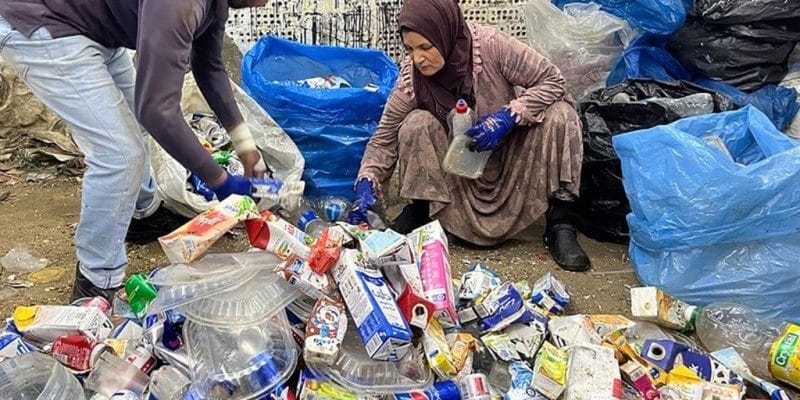To improve its waste management in Egypt, Swiss sustainable packaging solutions provider SIG is banking on Egyptian company Plastic Bank's blockchain-based technology. The aim is to collect 700 metric tonnes of drinks cartons from the Greater Cairo area over the next three years.
Following its alliance with Egyptian company Tagaddod to recycle its used beverage and food cartons in 2022, Swiss group SIG wants to take its waste management in the land of the pharaohs up a notch. This is the rationale behind the partnership signed on 11 March 2024 with Plastic Bank, a company committed to combating plastic waste pollution of the oceans in Egypt. “This new partnership marks a further step in accelerating our progress towards a circular economy,” says Abdelghany Eladib, President and Managing Director for India, Middle East and Africa at SIG.
And to support its approach, the packaging solutions provider is banking on blockchain. This technology, provided by Plastic Bank, puts traceability at the heart of social recycling. “Our proprietary blockchain-secured platform assigns a unique claim identifier to each transaction, tracking all orders from the moment of exchange right through to our partners. Every kilo of waste exchanged by community members whose age has been verified at our collection branches is recorded in the PlasticBank® app,” says Palstic Bank. By rationalising and monitoring the collection and recycling of waste, including used drinks cartons, SIG also wants to make producers, who are partly responsible for pollution, more accountable. In Egypt, of the more than 95 million tonnes of waste produced each year, barely 60% is collected and less than 20% is properly disposed of or recycled.
Read Also – EGYPT: Tagaddod to recycle SIG’s used beverage and food cartons
Plastic Bank will also support the implementation of a beverage carton recycling system in the Greater Cairo metropolitan area, as well as the reduction of environmental impact and the creation of a market for recycled paper. The aim is to recycle 700 tonnes of beverage cartons over the next three years, while improving the livelihoods of around 1,000 local waste collection members through blockchain.
Deutsche Gesellschaft für Internationale Zusammenarbeit (GIZ), will act in this project as an experienced partner in development cooperation. The initiative is supported by the develoPPP funding programme of the German Federal Ministry for Economic Cooperation and Development (BMZ) and its special initiative “Decent Work for a Just Transition”.
Inès Magoum






